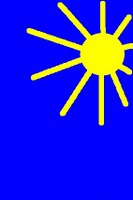 The museum is part of the International Institute of Peace Studies and Global Philosophy. This institute is unique among research centres throughout the world in that is combines training and practical work in conflict resolution with studying the entire range of global philosophical, scientific and spiritual traditions, together with the proactive search for global responsibility, peace and justice in our time. The institute is housed in the Castle of the Muses, on the shores of Loch Goil, where it is also home to the Truth and Reconciliation Commissions for Ireland & Britain and for the Middle East, the Poseidon Seminars, and the Druid Peace Order, among many other organisations and projects.
The museum is part of the International Institute of Peace Studies and Global Philosophy. This institute is unique among research centres throughout the world in that is combines training and practical work in conflict resolution with studying the entire range of global philosophical, scientific and spiritual traditions, together with the proactive search for global responsibility, peace and justice in our time. The institute is housed in the Castle of the Muses, on the shores of Loch Goil, where it is also home to the Truth and Reconciliation Commissions for Ireland & Britain and for the Middle East, the Poseidon Seminars, and the Druid Peace Order, among many other organisations and projects.
The British & Commonwealth Peace Museum is a small private museum, dedicated to the quest for peace and understanding in the world. A peace based on mutual victory, understanding, enlightenment and beauty, not a peace based on humiliation and defeat of the “other”. The museum documents and exhibits all aspects of the search for peace between nations, people, religions and cultures both in history and ongoing. Their aim is to act as a scholarly research centre for peace and a living “museion” for peace research, to enable students and visitors to stay on retreat and see how peace might be feasible.
Each of the 9 large rooms of the castle is devoted to a particular Muse, and contains books, artefacts, paintings and sacred objects associated with the traditional archetypal energy of that Muse. They are also willing to house educational events and display appropriate memorabilia from the peace movements of Britain in an educational setting.
Castle of the Muses, Carrick Castle, Loch Goil
Lochgoilhead PA24 8AG, Argyll & Bute, Scotland
www.educationaid.net / www.lulu.com/iipsgp
iipsgp@educationaid.net

 The Associazione Museo Italiano per la Pace (Association of Italian Museums for Peace) works to promote a culture of peace in schools.
The Associazione Museo Italiano per la Pace (Association of Italian Museums for Peace) works to promote a culture of peace in schools. The Directorate of Anfal Museum was built in 2012 as a result of the al-Anfal Campaign against the Kurdish people (and other non-Arab populations) in northern Iraq. This campaign was led by the Ba’athist Iraqi President Saddam Hussein and headed by Ali Hassan al-Majid in the final stages of Iran-Iraq War in 1988. The Anfal campaign included the use of ground offensives, aerial bombing, systematic destruction of settlements, mass deportation, firing squads, and chemical warfare, which earned al-Majid the nickname of Chemical Ali. 4000 villages were destroyed and 182.000 people lost their lives. The campaign has been characterized as genocidal in nature.
The Directorate of Anfal Museum was built in 2012 as a result of the al-Anfal Campaign against the Kurdish people (and other non-Arab populations) in northern Iraq. This campaign was led by the Ba’athist Iraqi President Saddam Hussein and headed by Ali Hassan al-Majid in the final stages of Iran-Iraq War in 1988. The Anfal campaign included the use of ground offensives, aerial bombing, systematic destruction of settlements, mass deportation, firing squads, and chemical warfare, which earned al-Majid the nickname of Chemical Ali. 4000 villages were destroyed and 182.000 people lost their lives. The campaign has been characterized as genocidal in nature.